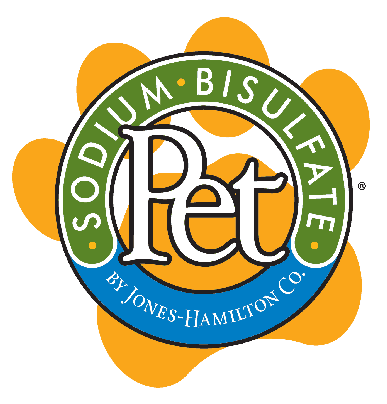Leverage Inorganic Mineral Acids as Value-Added Ingredient to Address Feline Urinary Tract Disease
In 2016, urinary tract-related conditions ranked as the most common illness among pet cats in the US, with more than 4,700 insurance claims at an average cost of $441 per cat according to a top pet insurance company.
The popularity of pet food and treats with natural ingredients combined with a growing interest in preventative care is creating new opportunities for pet food manufacturers. Given that the percentage of US households with pets increased from 56 to 68 percent in the last 20 years, with more than 94 million cats living as companion animals during those years, the business opportunity for value-added products capable of addressing a common feline illness is significant.
Understanding Feline Urinary Tract Disease
Feline lower urinary tract disease is a significant problem for pet owners as up to 14 percent of cats may have buildup of struvite crystals that pose the potential for urinary tract blockage. It’s vital that pet food formulators understand the link between their products and these common conditions—specifically how they contribute to the exasperation or remediation of the issues.
A feline urine pH range of 6.0 to 6.5 is considered healthy or acceptable. Many cat foods contain a high grain volume, which causes urine pH to become too alkaline, often to a point where struvite stones form.
In addition, cats do not drink water as naturally as other companion animals. Often, the majority of their necessary water intake comes from their diet, which causes their urine to be over saturated leading to the formation of struvite crystals or calcium oxalate stones form.
Understanding Struvite Crystals and Calcium Oxalate Stones
Made of magnesium, ammonium, and phosphate, struvite crystals are the most common form of urolith, often forming in high pH environments. If struvite stones do form and block the cat’s urethra, medication can aid in stone dissolution, but surgical removal is the only sure way to address such a critical structural issue. Preventative care that starts with a cat’s diet by balancing pH to promote optimal conditions is a much more cost-effective solution.
Calcium oxalate stones are another common problem in felines related to pet food formulation. High levels of calcium in the diet may increase the risk of stone formation by increasing urinary calcium concentration, which can result in:
- Increased vet costs (medication, surgery, expensive prescription food)
- Frequent, painful urination with possible blood in the urine
- Urinating outside of the litter box area
- Emotional distress
A cat experiencing a urethral obstruction may strain to urinate, make frequent attempts to urinate, and produce little, if any, urine. If the obstruction remains untreated, the cat usually becomes more upset, often crying in pain.
A Feed Additive for Preventative Care
Preventing stone formation in cats can be as simple as adding Sodium bisulfate Pet (SBS Pet®), a dry granular product with an acid strength slightly stronger than phosphoric acid. SBS Pet is a non-hazardous natural acidifier without the safety concerns of other acidifiers–an important consideration with the burgeoning growth of natural pet care products.
Sodium bisulfate, not to be confused with either sodium bisulfite or menadione sodium bisulfite complex, can dissolve existing struvite crystals. It has been shown effective as a urine acidifier, combatting struvite formation without negative side effects such as affecting the food’s calcium-to-phosphorous ratio. While SBS Pet® can be used in all types of pet food products, it has a strong presence in the cat food market due to its positive effect on palatability.
Research Proven Effectiveness
One study that evaluated the use of sodium bisulfate as a urine acidifier found that cats were able to maintain a urine pH at the optimal range, from 6.0-6.5, which helps control struvite formation. SBS was also proven to help prevent and dissolve struvite crystal formation by promoting increased water intake and therefore, higher urine volume in cats.
Various research has also shown that SBS Pet®:
- Lowers urine pH
- Reduces levels of dietary magnesium and phosphorous
- Acidifies urine without affecting the food’s calcium-to-phosphorous ratio.
- Increases urine volume
- Promotes water consumption without adding phosphorous
- Improves palatability
- Improved employee safety with its non-hazardous formulation
Satisfy Consumer-Driven Demand for Safe, Natural Pet Food Products
Pet food nutritionists are challenged with the task of meeting a pet’s complete nutritional requirements in a single food, while also accounting for a new consumer-driven consciousness regarding natural ingredients. Using SBS Pet® in dry cat food and soft treat allows for the delivery of a safe, natural product with the added-value of improved urinary tract health.
References
The 2017-2018 APPA National Pet Owners Survey Debut, Accessed March 6, 2019, https://americanpetproducts.org/Uploads/MemServices/GPE2017_NPOS_Seminar.pdf
Top 10 Most Common Dog and Cat Ailments Revealed, PRNewswire, Mar 29, 2016, http://www.prnewswire.com/news-releases/top-10-most-common-dog-and-cat-ailments-revealed-300242164.html
Feline Idiopathic Lower Urinary Tract Disease in Cats, Petmd, accessed March 5, 2019. https://www.petmd.com/cat/conditions/urinary/feline_idiopathic_lower_urinary_tract_disease
Evaluation of Sodium Bisulphate and Phosphoric Acid as Urine Acidifiers for Cats, PubMed.gov, October 2003, https://www.ncbi.nlm.nih.gov/pubmed/14620912
Dietary Sodium Promotes Increased Water Intake and Urine Volume in Cats, The Journal of Nutrition, Volume 143, Issue 8, August 1, 2004. https://doi.org/10.1093/jn/134.8.2128S
Cats Benefit from Incrased Dietary Moisture, Waltham Centre for Pet Nutrition, September 2010, Cambridge, UK, retrieved March 6. https://www.waltham.com/news-events/nutrition/cats-benefit-from-increased-dietary-moisture/5548/
Feline Lower Urinary Tract Disease, October 2016, https://www.vet.cornell.edu/departments-centers-and-institutes/cornell-feline-health-center/health-information/feline-health-topics/feline-lower-urinary-tract-disease

